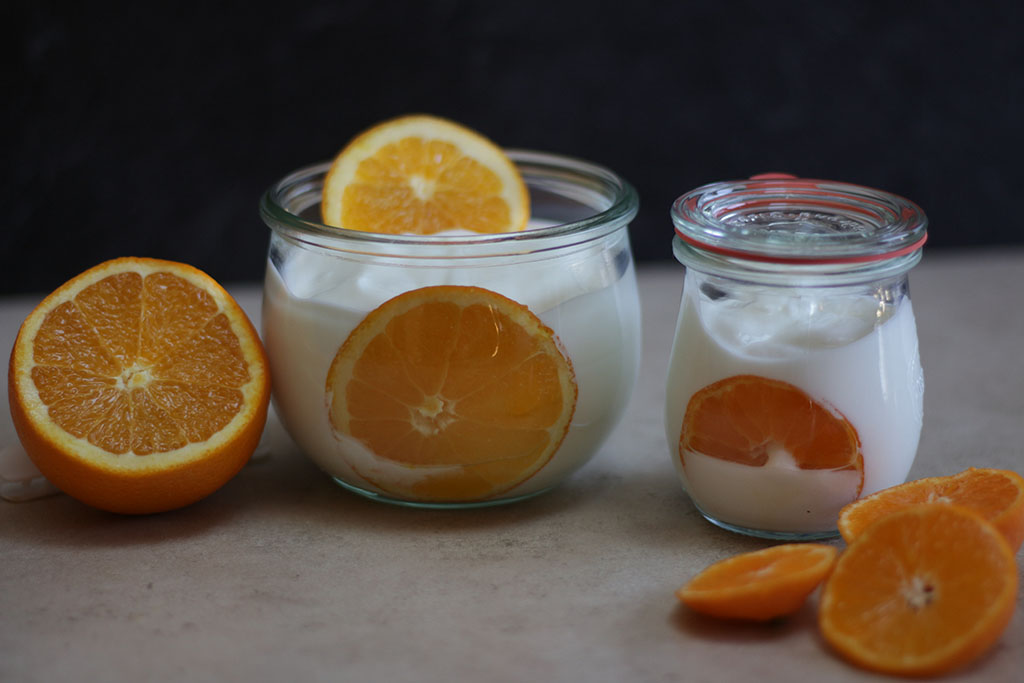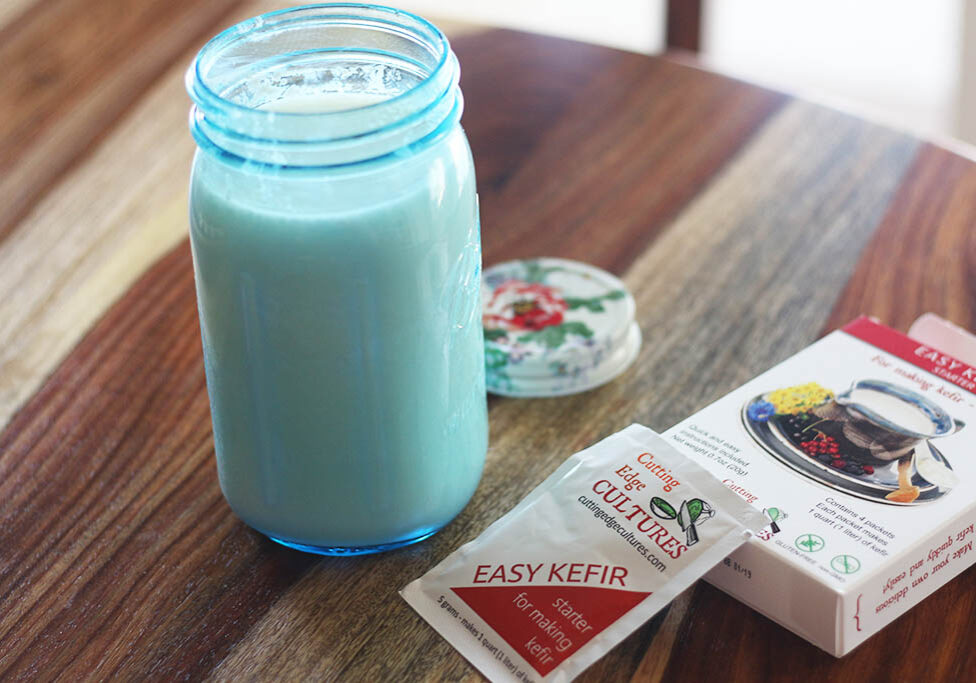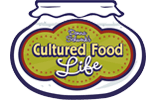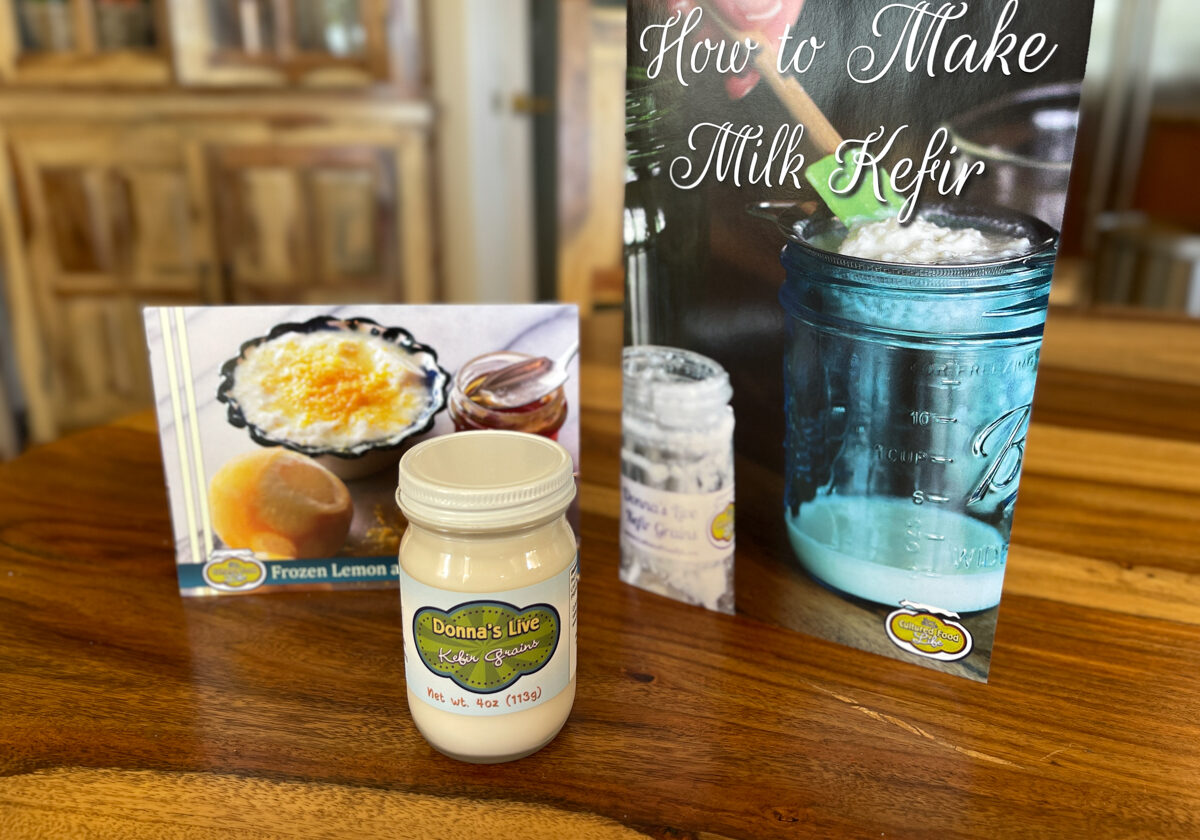
Is Kefir the Answer for Acid Reflux?

One of the first things I noticed when we started drinking kefir was the help my husband received with eliminating his acid reflux. It was quite surprising to me since he popped antacids like they were candy. But fast forward twenty-four years and I've had so many, many people tell me they've gotten off their prescription drugs for gastroesophageal reflux disease (GERD) and every one of them told me kefir was what accomplished the task.
A man named John came up to me after one of my classes and said, “I take a glass of kefir every day before I go to work—without fail. I don’t sweeten it. I just drink it straight. I wanted to thank you because it allowed me to get off all my medication for acid reflux. I feel like a new man after years of struggle with this.” Then he smiled, shook my hand, and said, “Kefir is powerful medicine for acid reflux, and you should tell everybody who will listen.” I am heeding those words because I have heard time and time again how much kefir helps people who are struggling with acid reflux.
Inflammation And GERD
If you've ever experienced acid reflux, you know how uncomfortable, frustrating, and sometimes even debilitating it can be. Fortunately, there's a natural remedy that has been life-changing for many, including myself—kefir. This creamy, fermented probiotic beverage offers powerful benefits that can help soothe your digestive system and significantly reduce acid reflux symptoms.
Gastroesophageal reflux disease (GERD) occurs when the lower esophageal sphincter malfunctions, allowing the contents of the stomach to flow up into the esophagus. Some speculate that an overgrowth of bad bacteria in the stomach causes undigested food to ferment. In turn, this fermentation causes gas to build up, eventually forcing the contents of the stomach up into the esophagus. This is what creates the symptoms of burning and pain commonly associated with acid reflux. Inflammation is one of the main culprits of GERD. Excess acid in the esophagus causes inflammation resulting in pain and irritation of the esophageal lining.
Antacids Cause More Harm Than Good
 Lactobacillus is an important probiotic as it converts lactose and other sugars to lactic acid. The production of lactic acid makes the gut acid, which inhibits the growth of bad bacteria and other pathogens. When the ratio of good bacteria to bad bacteria gets out of balance many health problems can start occurring. Taking antacids may temporarily stop stomach acid production thus relieving heartburn, but this can allow the ratio of good bacteria to harmful bacteria to be disrupted creating more problems with GERD along with a host of other problems.
Lactobacillus is an important probiotic as it converts lactose and other sugars to lactic acid. The production of lactic acid makes the gut acid, which inhibits the growth of bad bacteria and other pathogens. When the ratio of good bacteria to bad bacteria gets out of balance many health problems can start occurring. Taking antacids may temporarily stop stomach acid production thus relieving heartburn, but this can allow the ratio of good bacteria to harmful bacteria to be disrupted creating more problems with GERD along with a host of other problems.
Cultured foods, especially kefir, have anti-inflammatory properties and can ease the symptoms of inflammation. If you are experiencing these symptoms, one of the first things you should do is add kefir to your diet to restore balance in your gut. Kefir is packed with the Lactobacillus bacterium plus 50 other probiotics. These probiotics change your gut flora and reduce the symptoms of acid reflux. [1]
I Stopped Eating Cultured Foods ~ Here’s What Happened!
If you read one of my previous posts, I Stopped Eating Cultured Foods ~ Here’s What Happened! you know that one of the first things that happened after a few weeks of no cultured foods was I got the worst heartburn! It was awful and it started coming on and off every few days. I was really surprised that this would happen. My body really needs its daily kefir and anytime your body gives you a symptom, it's a warning sign. You should heed the call and pay attention to these cries for help that your body sends you. Once I went back to having kefir every day (1-2 cups daily), my symptoms vanished and no more acid reflux
Can H. Pylori Protect Against Acid Reflux?
 Another insight about reflux deals with the pathogenic bacterium H. pylori. Until recently, H. pylori has been put forth as a “bad” bacterium, but now an interesting twist in its story has been discovered: H. pylori protects against acid reflux. As I have said throughout my website, we are seeking balance, so it doesn’t surprise me that H. pylori can be helpful if it is kept in check.
Another insight about reflux deals with the pathogenic bacterium H. pylori. Until recently, H. pylori has been put forth as a “bad” bacterium, but now an interesting twist in its story has been discovered: H. pylori protects against acid reflux. As I have said throughout my website, we are seeking balance, so it doesn’t surprise me that H. pylori can be helpful if it is kept in check.
Martin J. Blaser, M.D., elaborates on the research around H. pylori in his book Missing Microbes. He says that, when present in large numbers, this bacterium can cause ulcers and even stomach cancer in some people. But H. pylori also helps regulate stomach acidity, which plays a large part in the symptoms of GERD. When an ulcer occurs, the standard treatment is using antibiotics to eradicate H. pylori, which heals the ulcers but also raises the acidity of the stomach. Blaser and his colleagues found that the patients without H. pylori were eight times more likely to have acid reflux. [2] So the treatment that eliminated H. pylori worsened acid reflux and even esophageal cancer.
Kefir has eliminated acid reflux in many people I have met, including myself and my husband, and the studies that continue to surface give me great hope that soon cultured foods and probiotics will be seen as a viable treatment for this ailment.
Why Kefir Helps with Acid Reflux
Kefir is rich in probiotics—beneficial bacteria and yeast—that significantly improve gut health and digestion. Here's how kefir can specifically help ease acid reflux:
- Balances Gut Bacteria
Kefir introduces healthy probiotic strains into your gut, balancing your gut microbiome. Acid reflux is often linked to an imbalance of gut bacteria. By restoring a healthy balance, kefir can improve digestion, helping to prevent acid reflux at its source. [3]
- Reduces Inflammation
Chronic acid reflux often irritates the lining of your esophagus and stomach, causing inflammation. Kefir contains at least 19 powerful anti-inflammatory properties that soothe and heal your digestive tract, reducing symptoms and discomfort. [4]
- Improves Digestion
Improper digestion is a common trigger for acid reflux. Kefir supports healthy digestion by helping break down food more efficiently, enhancing nutrient absorption, and regulating stomach acid production. Better digestion means less risk of reflux and fewer uncomfortable episodes. [5]
- Balances Stomach Acid Naturally
Instead of simply suppressing stomach acid, kefir helps restore your body's natural acid balance. The probiotics in kefir support healthy digestion, ensuring your stomach produces just the right amount of acid needed to break down your food efficiently. [6]
Listen To My Podcast
Struggling with acid reflux? You’re not alone—and the solution might not be another antacid but kefir! In this episode, I share how this powerful probiotic drink helped my husband and countless others eliminate GERD symptoms naturally. Learn how kefir balances gut bacteria, reduces inflammation, and restores digestion, plus why antacids may be making things worse. Tune in to discover if kefir is the missing piece in your gut health journey!
References:
- 1st Reference
- 2nd Reference
- 3rd Reference
References:
-
- https://pmc.ncbi.nlm.nih.gov/articles/PMC10458865/
- M.J. Blaser, Missing Microbes: How the Overuse of Antibiotics Is Fueling Our Modern Plagues, New York, Henry Holt Publishing (2014): 123–9.
- https://pmc.ncbi.nlm.nih.gov/articles/PMC6769690/
- https://med.stanford.edu/news/all-news/2021/07/fermented-food-diet-increases-microbiome-diversity-lowers-inflammation.html
- https://bmcmedicine.biomedcentral.com/articles/10.1186/s12916-024-03299-x
- https://pmc.ncbi.nlm.nih.gov/articles/PMC10742242/
Are you on the list?
Sign up today and I'll send you my free Getting Started Guide!
Each week I'll send you updates, tips, recipes, and more! You might even be a winner of my weekly giveaway! (starter cultures, memberships, and more!)
Come be a part of my cultured food family!





